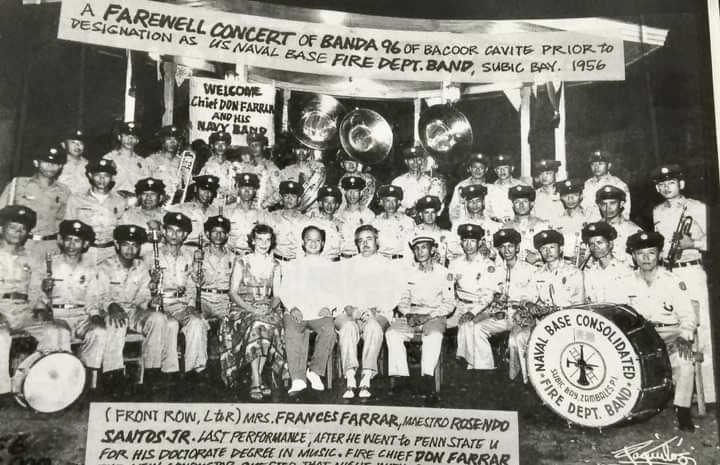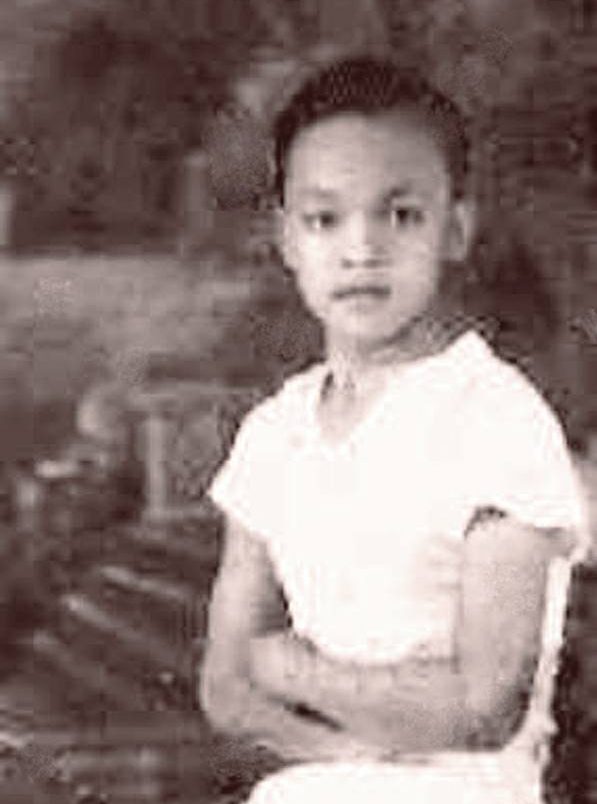Rosendo Ejercito Santos, Jr. was born on September 3, 1922. He was born and raised in Caridad, Cavite City in the Philippines. He was the youngest child and only son. His father was Rosendo Ejercito Santos, Sr., a vigorous politician who thrice served as mayor of Cavite.
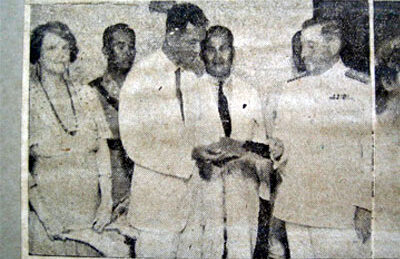
Rosendo inherited his music from his mother, the former Castora Salazar: a genteel Caviteña who, as a young girl in pre-Revolutionary days, was an accomplished harpist. Although his father had hopes of his son going into law (much like Robert Schumann’s father and other prominent composers), his mother always loved music and encouraged Rosendo’s efforts. He took his first music lessons when he was 10 under Julian Felipe, the composer of the Philippine National Anthem.
A year later, he was teaching music for employment. His pupils thought it was more painless to study music under a teacher who, when the solfeggio palled, could be trusted to play patintero with them! As a freshman at Cavite High School, at the ripe old age of 12, he was doing the musical arrangements for one of Cavite City’s two topnotch bands: The Caridad Band. And his arrangements, even then, reflected his bold treatment in instrumentation.
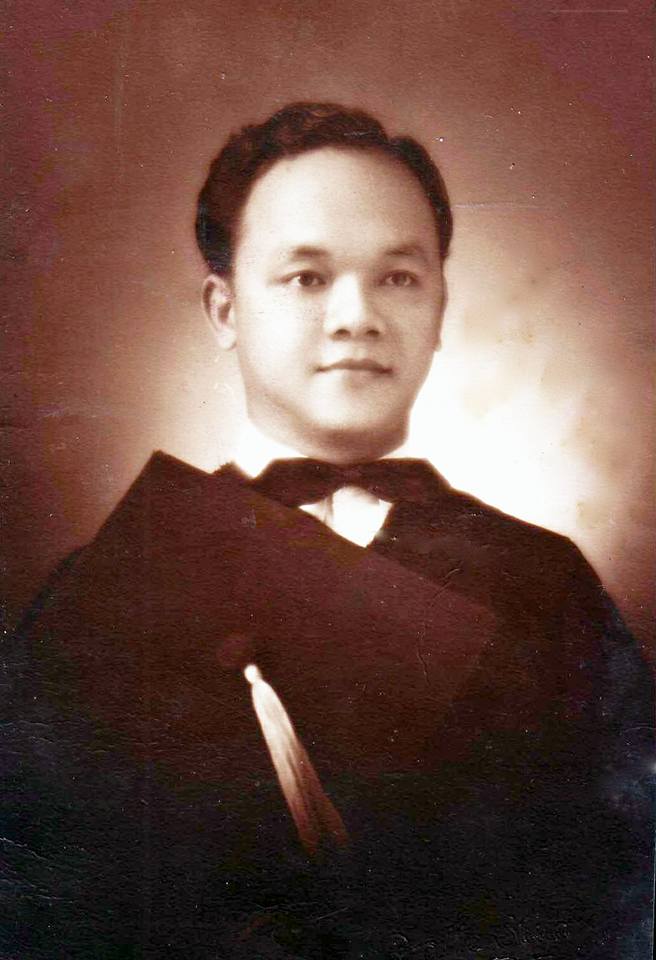
He graduated from High School March 13, 1939. He then studied at the University of the Philippines Conservatory of Music formally as a composer. The 1940s would prove to be a turbulent era for the Philippines as WWII became tragically local. Rosendo’s drive to succeed fueled momentum as he would become involved in a number of events, organizations, and affiliation with artists who themselves would play important roles in the cultural and artistic movements in post-war Philippines.
Second prize for composition:
In 1941, on the occasion of the Silver Jubilee of the University of the Philippines Conservatory of Music which opened in 1916, three composition prizes were awarded to students of the program. On September 26, 1941, a gala concert featuring these compositions was presented. Rosendo was awarded second prize for his “Romance in D Major, an instrumental trio”. For this, he was given a silver medal and diploma. 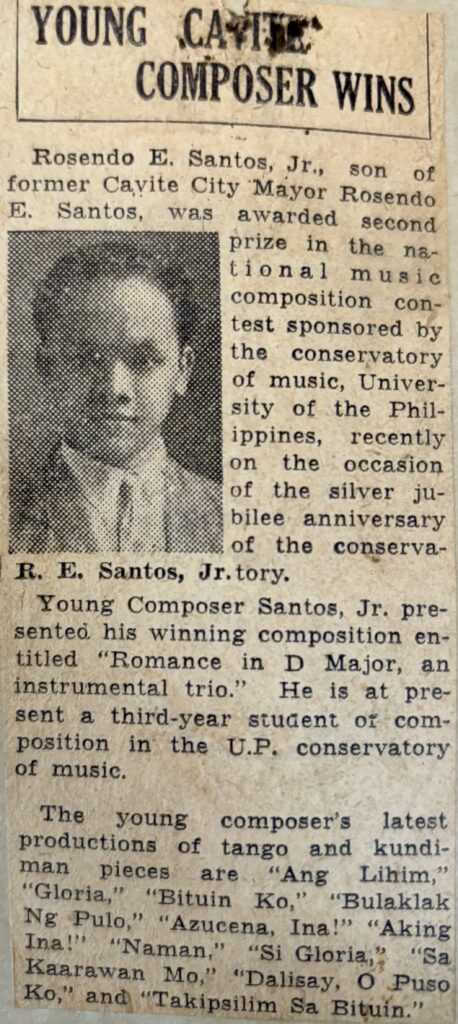
18-year old Rosendo already is racking up impressive events and opportunities around town in 1941:
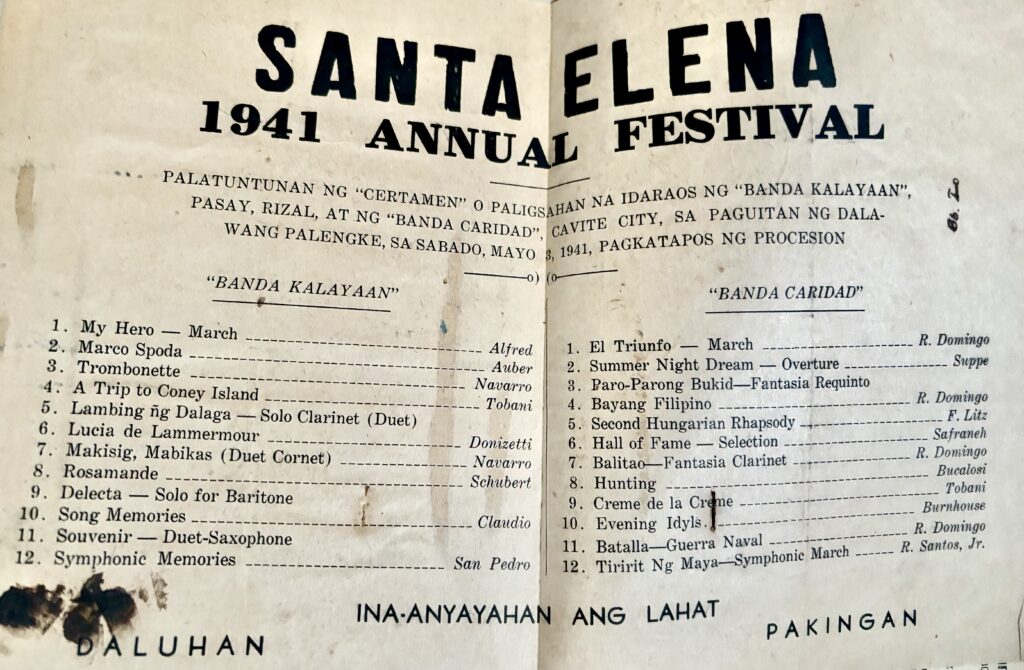
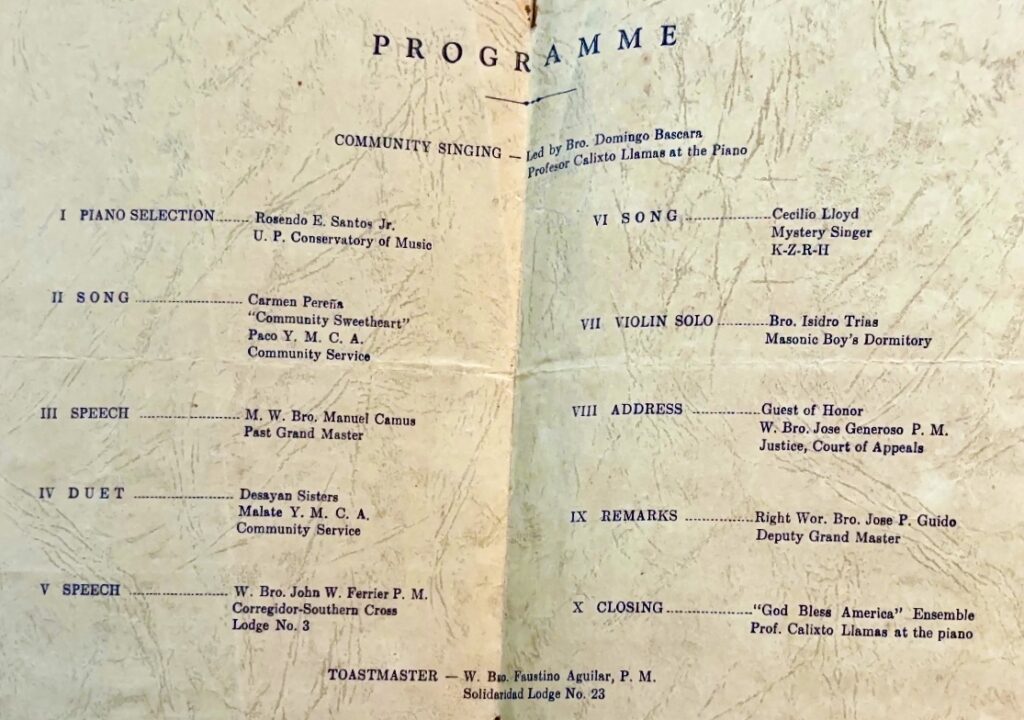
Municipal Symphony Orchestra of Manila
As a member of the defunct Municipal Symphony Orchestra and as a player of Maestro Federico Elizalde’s Little Symphony, Rosendo had been called “one of the best tympani players in the world.” Source of this tribute was a ranking delegate to the Southeast Asia Regional Music Conference held there. This delegate, by his own admission, had heard the tympani players of the best symphonies in the United States and Europe. 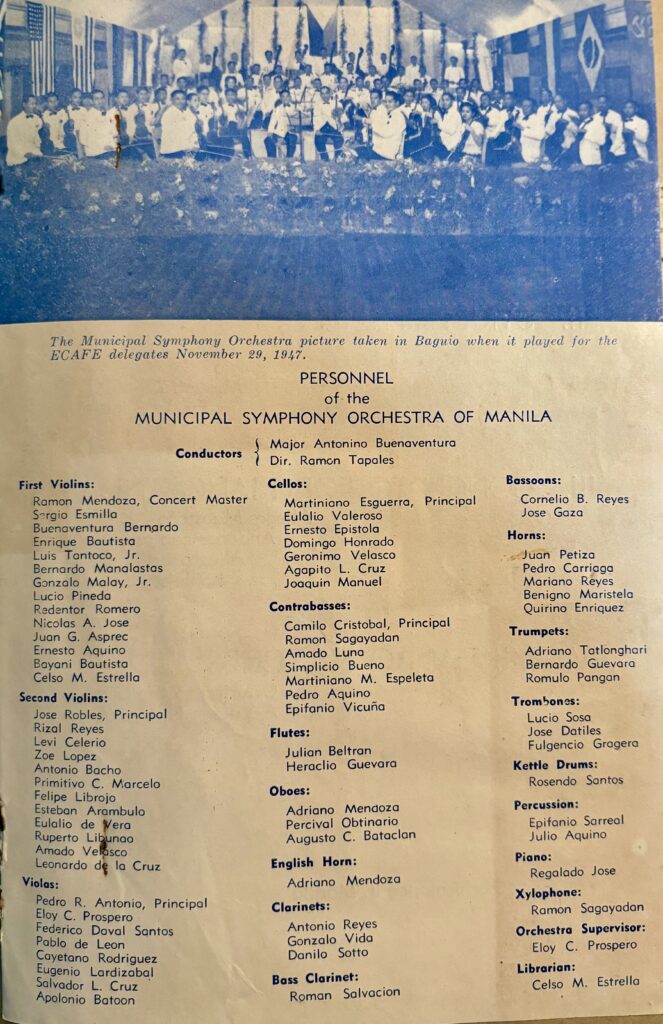
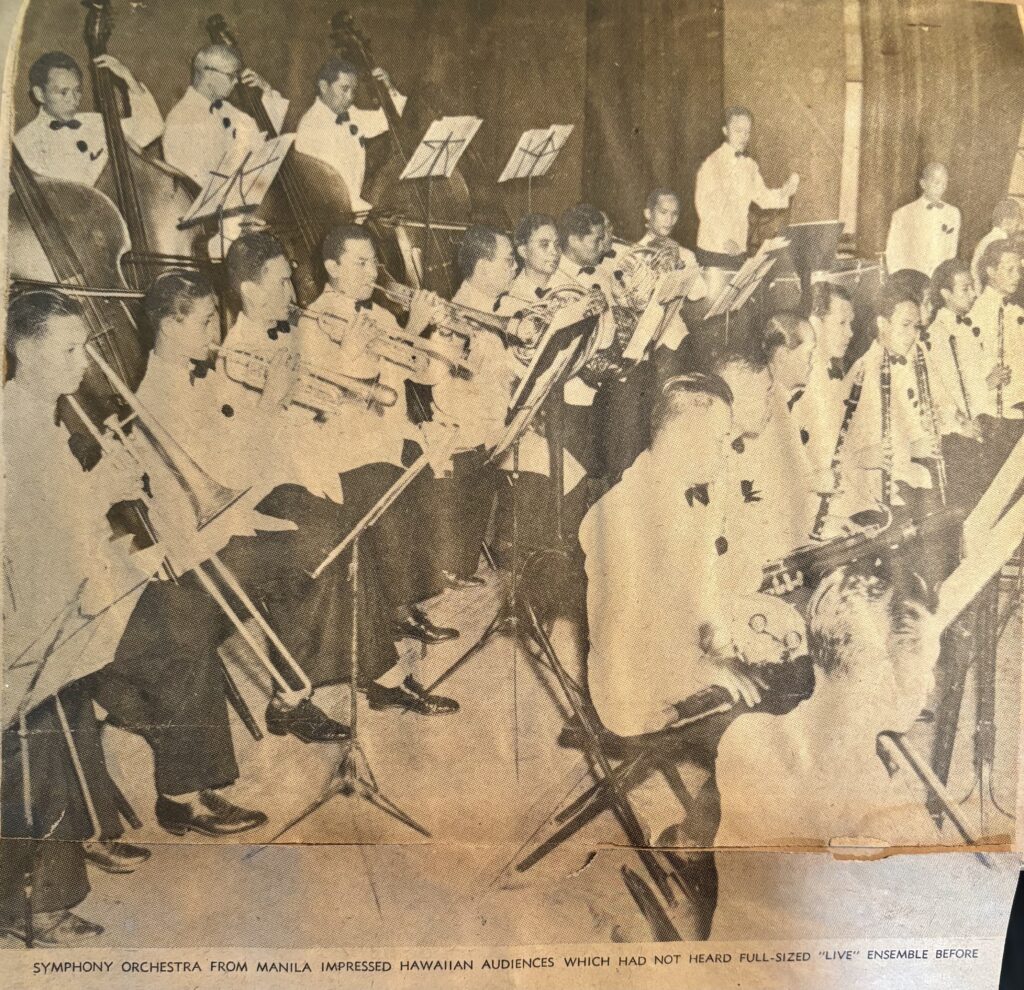
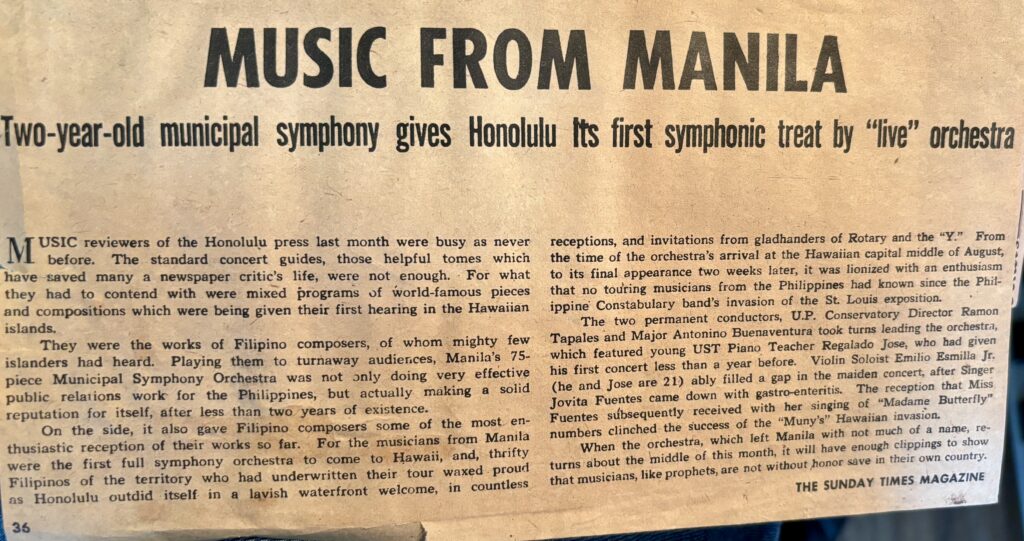
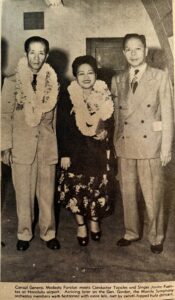
Consul General Modesto Farolan, Jovita Fuentes, Conductor Ramon Tapales at Honolulu airport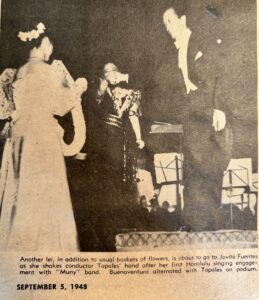
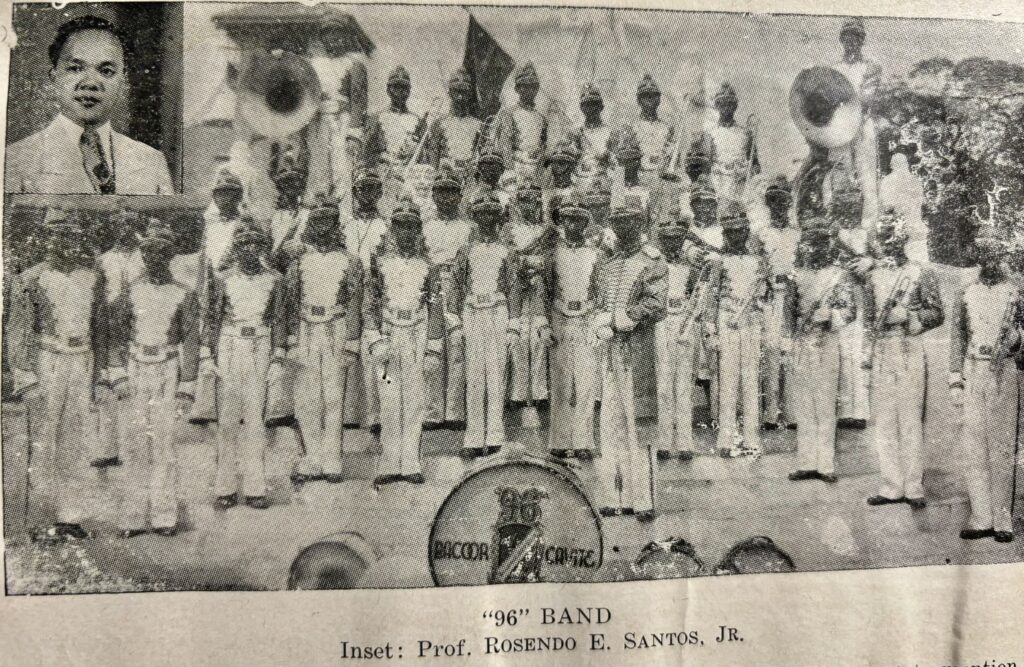
“96” Band
Ever the devoted son, Rosendo continued to live with his aged parents in Cavite City even while working his full days. Although single, he was always a family man who was expected to provide for his parents, and five other youngsters: nieces and nephews in his care. Even as a University of the Philippines faculty member, he could have very well taken up residence in Diliman, but too many things demand his attention in his home grounds. He was the conductor of the Sangley Point Choir, made up of a group of American servicemen, their wives and their dependents. He also headed the Philippine Navy Choir which regularly assisted at Catholic services of Sundays and holidays. In addition, he frequently arranged music for the two Cavite City bands. One prominent band under his direction is the “96” Band.
One of the most recognized brass bands in the archipelago is the “96” Band of Bacoor, Cavite. It was organized in 1927 through the enterprising spirit of Mr. and Mrs. Victor Enriquez, local music lovers. Its first name was “Muling Sumikat” Band and later changed to “Binhi ng Pagasa” Band. Its present name was suggested by Mr. Angel Gervasio, another “aficionado en musica.” Its fame and prestige may be attributed to the zeal of its past “maestros” notably Miguel Apolonio, and of course, in the indefatigability of the members of the band. For unlike orchestral bands, brass bands must excel not only in music but also in drills and marches, not to mention the endurance demanded of the members when confronted by another band in “serenatas” during town fiestas. The band not infrequently had to play for 36 hours without respite. Because of its fame it had already travelled to the four nooks of the country, usually to grace town fiestas with its fancy drills and martial airs, coronation festive, and sometimes to “march along” with one who had to go, as it did in Iloilo City. Rosendo directed this band in the late 1940s into the 1950s. 